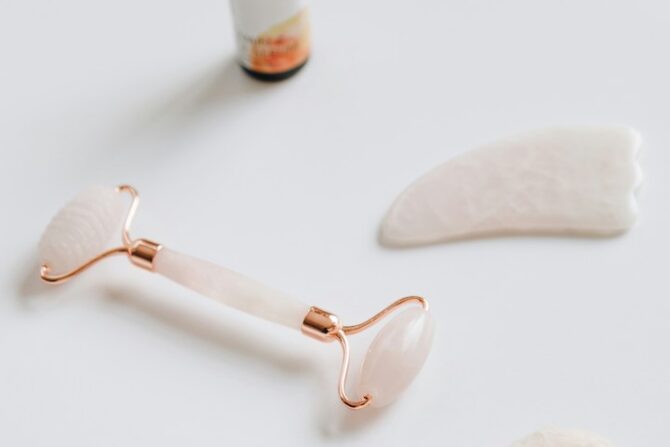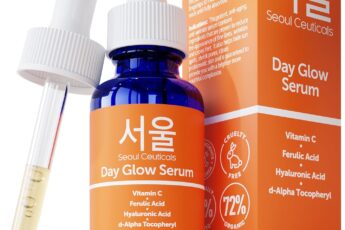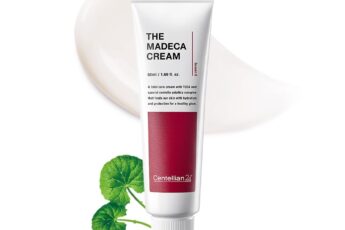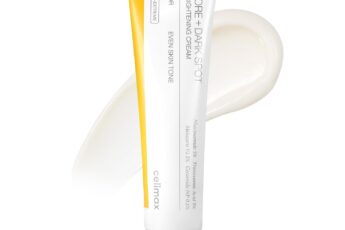Brightening and anti-aging properties have truly set Vitamin C serums into the limelight of the skin care world. Realistically, though, they might not be for everyone. Some people get irritation, while others find the price tag a bit intimidating. For those who either want to avoid the possibility of side effects or merely seek something cheaper, nature itself holds an alternative. The article will go deep into the natural alternatives to vitamin c serums, giving insight into effective natural ingredients, reviews of the products, DIY recipes, and how to incorporate them into your routine.
Table of Contents
Benefits of Using Natural Alternatives to Vitamin C Serums
Perhaps you are wondering why you would want to choose a natural alternative to traditional Vitamin C serums. There are, in fact, quite a lot of good reasons.
First, many natural ingredients act much more softly on the skin. In cases of sensitive or a breakout-prone skin, these alternatives may offer similar benefits without the irritation that usually accompanies synthetic products. This can be especially appealing in the case of those who have had a bad experience with traditional Vitamin C formulations.
Another important aspect is that of cost. Most natural ingredients are considerably cheap as compared to commercial ones. You already have most of these ingredients in your kitchen or local health store. Beautiful skin does not have to break the bank.
Last but not least, natural alternatives may have a number of environmental benefits. So with every purchase of skin-friendly ingredients, you’re being nice to your skin as well as the environment. Many regular products contain artificially manufactured chemicals that eventually add to pollution. Going natural minimizes your carbon footprint.
Natural Ingredients Which Can Replace Vitamin C Serums
Let’s now discuss some natural remedies that can be used instead of Vitamin C serums.
Rosehip Oil
Rosehip oil is one of the superstars in the world of natural skincare. Rich in antioxidants and a natural source of Vitamin C, rosehip oil does wonders when it comes to brightening the skin and evening out the skin tone. It is known to be a good moisturizer that is recommended for people with dry skin.
Pros
- Moisturizing and nourishing.
- Rich in antioxidants.
Cons
- Can feel heavy for oily skin.
- This might not be the most appealing fragrance to others.
Green Tea Extract
If you are looking for something that targets the war against free radicals and inflammation, then you should go for green tea extract. Rich in antioxidants, it works wonders for sensitive skin by soothing it with its cooling touch.
Pros
- Reduces redness and irritation.
- Suitable for all skin types
Cons
- As far as brightening goes, the results are a bit slow.
Licorice Root Extract
Licorice root is very good for lightening the skin. It helps dark spots fade, making your skin even and therefore is a miracle of nature that does not irritate the skin, thus making it ideal for people with hyperpigmentation problems.
Pros
- Mild on the skin.
- Has very good results in the case of hyperpigmentation.
Cons
- May take some time to achieve the results.
- Less effective for deep wrinkles.
Sea Buckthorn Oil
Sea buckthorn oil is also enriched with nutrients. It comprises different types of vitamins and fatty acids, which are responsible for hydration and giving the skin its glowing effect. This can be the best option for those who want glowing skin.
Pros
- Nourishing and hydrating
- Gives a glowing look
Cons
- Can clog pores for some.
- Could leave a temporary stain on the skin.
Synthetic Product Reviews
Eclat Vitamin C Face Serum
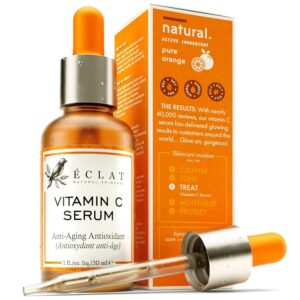
First, let’s begin with one of the hot options in the market: Eclat’s Vitamin C Face Serum. The serum contains 3-O Ethyl Ascorbic Acid, a very stable form of Vitamin C, for faster brightening of your skin. It effectively address ten visible signs of aging that include firmness, neck lines, wrinkles, and uneven skin tone.
What makes this product unique is the lightweight formula that fuses sodium hyaluronate, aloe vera, and vitamin E to lock moisture within the skin and soothe it while infusing the skin with vital nutrients. Dermatologist-tested and vegan-friendly, it has gained good reviews from different beauty publications, thus making it many people’s first choice.
Pros
- Improves skin texture and glow well.
- Suitable for every skin type.
SeoulCeuticals Korean Skin Care Vitamin C Hyaluronic Acid Serum
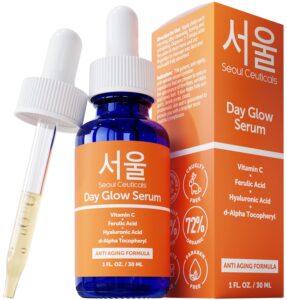
Another great choice would be the Vitamin C Hyaluronic Acid Serum by SeoulCeuticals. It really is a powerhouse of 20% Vitamin C, plant-based hyaluronic acid, and an infusion of ferulic acid plus vitamin E. You will also find added citrus stem cells and Korean ginseng, which are known for their anti-aging properties.
This is a potent serum, considering that an improvement can be seen in wrinkles, fine lines, and overall skin brightness in as little as three weeks of daily use. This serum will also help with acne scars and the size of pores, making it multi-functional.
Pros
- Works for a variety of skin concerns, acne included.
- Results can be seen very quickly.
Tips for How to Add Some Natural Ingredients Into Your Skincare Routine
So, you finally want to be part of this world of natural alternatives. Where do you start?
Begin by determining when to use these serums. Some serums are best when applied at the beginning of the day, and some are much better for evening application. Perhaps you would enjoy putting on a calming green tea extract serum in the night because it helps relax your skin after a long day.
Layer them over other products. Now, things are going to get really interesting. You can layer lightweight oils over heavier moisturizers or use them in conjunction with your favorite cream. Just make sure they don’t conflict with any active ingredients in your routine. For example, if you use a retinol product, it’s best to space them out.
Also Read: Using Squalane For Skin Hydration
And finally, do a patch test. Perform a patch test in a small area of your face with any new ingredient before smearing it all over your face to see if it agrees with your skin. It’s the easy next step to save you from possible irritations.
Do-It-Yourself Natural Serum Recipes
Making serums for yourself is really fun and rewarding. You are free to tailor-make the ingredients in your DIY serum according to what your skin requires. In addition, they are cheaper and, often, superior to store-bought serums with no added preservatives or other nasty additives. Always patch test new ingredients on a small area before covering your entire face to make sure an unwanted reaction does not occur.
Recipe 1: Rosehip and Jojoba Oil Brightening Serum
Ingredients: Rosehip oil, jojoba oil, optional vitamin E oil.
Instructions: Mix equal quantities of rosehip and jojoba oil, adding just a few drops of vitamin E. Store this blend in a dark glass bottle to preserve potency.
Benefits: Rosehip oil brightens and tonifies the skin, while jojoba oil hydrates lightly.
Recipe 2: Green Tea and Aloe Calming Serum
Ingredients: Brewed green tea, aloe vera gel, optional lavender essential oil.
Instructions: Mix equal parts cooled green tea and aloe vera gel. For extra soothing, add drops of lavender oil.
Benefits: Green tea reduces inflammation while aloe vera hydrates the skin without causing breakouts.
Recipe 3: Hydrating Serum with Licorice Root Extract & Glycerin
Ingredients: Licorice root extract, vegetable glycerin, distilled water.
Directions: Mix together equal parts of licorice extract and glycerin to two parts of distilled water. Always shake well before use. Store in refrigerator for freshness.
Benefits: Licorice does the work to help rid the skin of dark spots, and glycerin allows moisture into the skin.
Storage and Use Tips
When storing your homemade serums, let them be in dark glass bottles so they won’t be affected by light. Store most of your homemade serums in the refrigerator for up to a week or two maximum in order to keep them fresh. Just remember, always shake up your serums well prior to use because these natural ingredients will settle apart over time.
How to Choose the Right Natural Alternative for Your Skin Type
The proper selection of the natural ingredient you are using will largely impact the skin care result of your actions.
When using oily skin, lightly apply jojoba or green tea extract for oils that don’t clog pores, which is, of course, very important in the case of breakouts. If the skin is dry, one can use richer oils for added hydration, such as rosehip or sea buckthorn.
Sensitive types should go for more sensitive extracts, like licorice root or soothing ingredients such as aloe vera. These would reduce redness and will not further irritate it.
Tailor your options to your specific skin concerns, whether it be hyperpigmentation or any other sign of aging. For instance, if you are troubled with dark spots, then licorice root extract may be what you should include in your routine.
Conclusion
Natural aloe vera, turmeric face masks, and cucumber work just as well and are gentler than Vitamin C serums. You may need to experiment with various natural active ingredients and different methods of preparation to find what will work best for your skin without causing irritation.
With the right approach, you can have all these brightening and anti-aging benefits while still taking good care of the environment and your skin. Whether you choose to use ready-made products or venture into DIY territory, remember that the journey to beautiful skin is unique to you.
Frequently Asked Questions
Will the natural alternatives give the same results as Vitamin C serums?
Yes, most of these can offer similar brightening and anti-aging benefits and don’t give irritation at the same time.
Can I combine these natural ingredients with my products I currently use?
Sure! Just make sure they go well with each other.
How long will it take before I see the results?
Results might vary, but most natural options take some time, say a couple of weeks, for you to actually start seeing noticeable results.
Can I use these every day?
Most of the natural ingredients are gentle enough to be used daily but listen to your skin and adjust accordingly.

